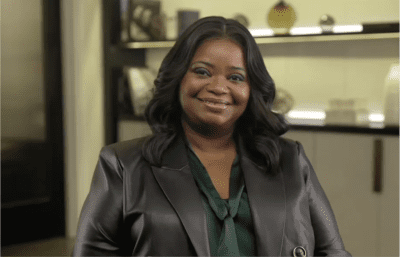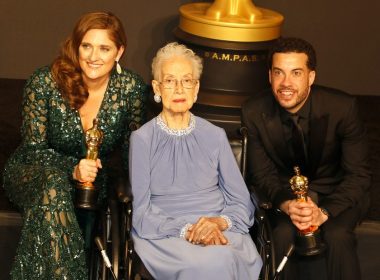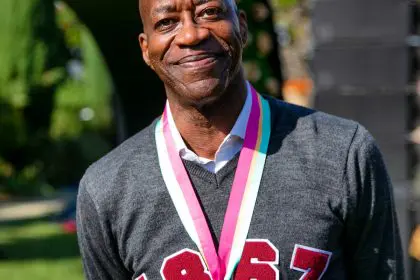
During a recent chat with The Jess Cagle Interview, Oscar-winning actress Octavia Spencer opened up about the influence Dorothy Vaughan — the first black supervisor at NASA — had and what we could still learn from the heroine today.
Though they’re not regularly celebrated as trailblazers, the women of the film, Vaughan and her two inspiring coworkers, Katherine Johnson (Taraji P. Henson) and Mary Jackson (Janelle Monáe), certainly helped shift our culture forward as early as the 1950s.
While, to the eye, they were simply a group of skilled mathematicians and scientists, dubbed “computers” at the Langley Research Center in Hampton, Virginia, the National Aeronautics and Space Administration’s inaugural field center, their minds aided in developing crucial calculations needed to support the launch and landing of John Glenn, the first American to orbit Earth in 1962.
“African-American women were living at the time where segregation was the letter of the law,” Spencer, 46, said. “They were basically treated as second-class citizens, but they weren’t complaining. They knew that they had more to offer, and they basically rolled up their sleeves and they did the work to be a part of something greater than themselves.”
According to NASA, Vaughan, a graduate from the historically black Wilberforce University, earned a B.A. in mathematics. Prior to heading the West Area Computing Unit (after Jim Crow laws required newly-hired “colored” mathematicians work apart from their white counterparts), she took a position as a math teacher at Robert Russa Moton High School in Farmville, Virginia, in hopes of getting her family through the Great Depression that swept through the nation.
In 1943, after President Franklin Roosevelt banned discriminatory employment practices by federal agencies, NASA recruited Vaughan, where she helmed an all-black group of female mathematicians for nearly a decade. She went on to become an expert FORTRAN programmer.
In spite of it all — the Great Depression, segregation, and much more — it’s the attitude these women kept through their plight, Spencer says, that’s important to keep in mind today. “I think what we can learn from them in light of the climate, that depending on which side of the coin you’re on politically, is no matter what’s going on, you have power,” Spencer explained. “The individual has power. But together we are many, and strong.”
Here’s to the film inspiring the next generation of talented young women. Hidden Figures is now playing in theaters. So, be sure to get out there and support.














